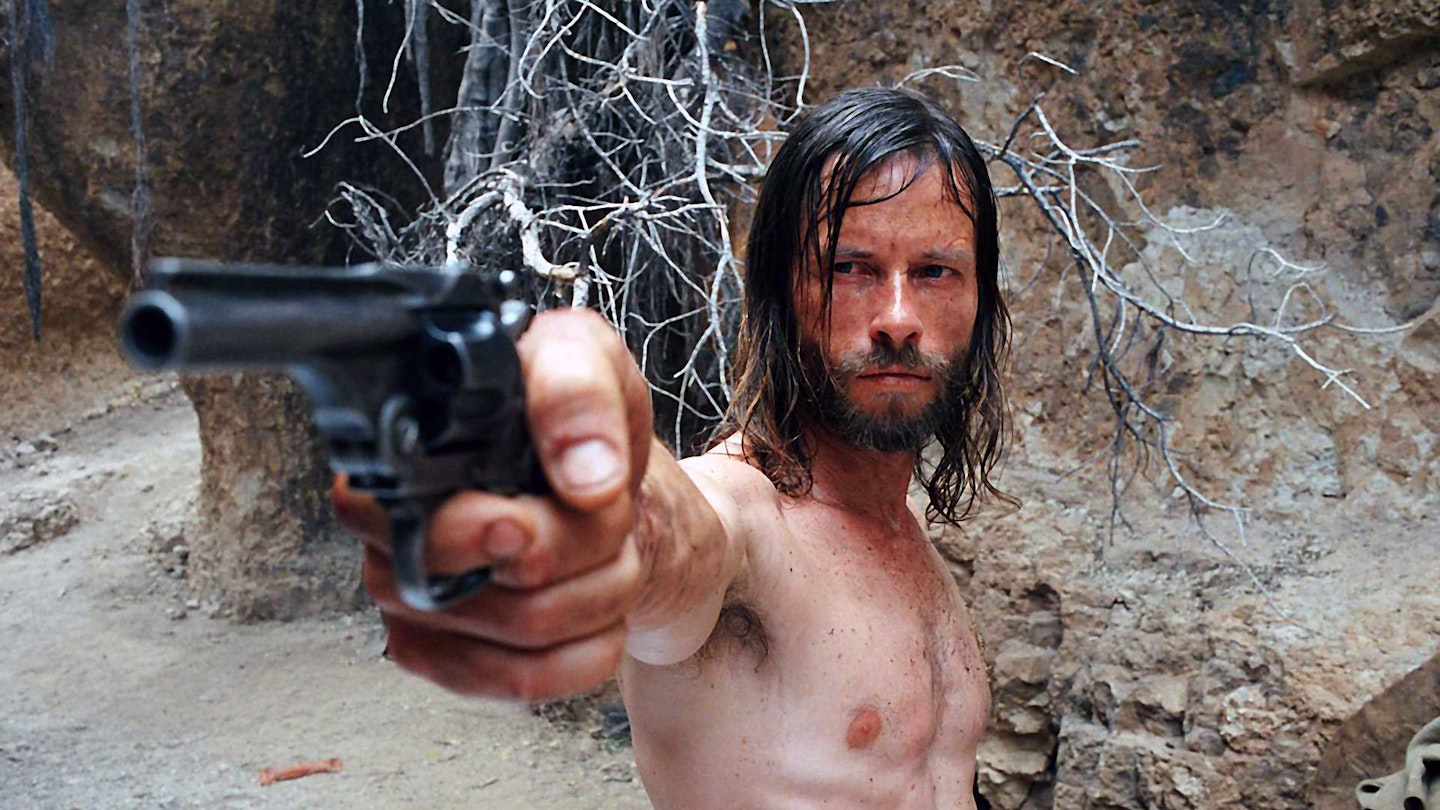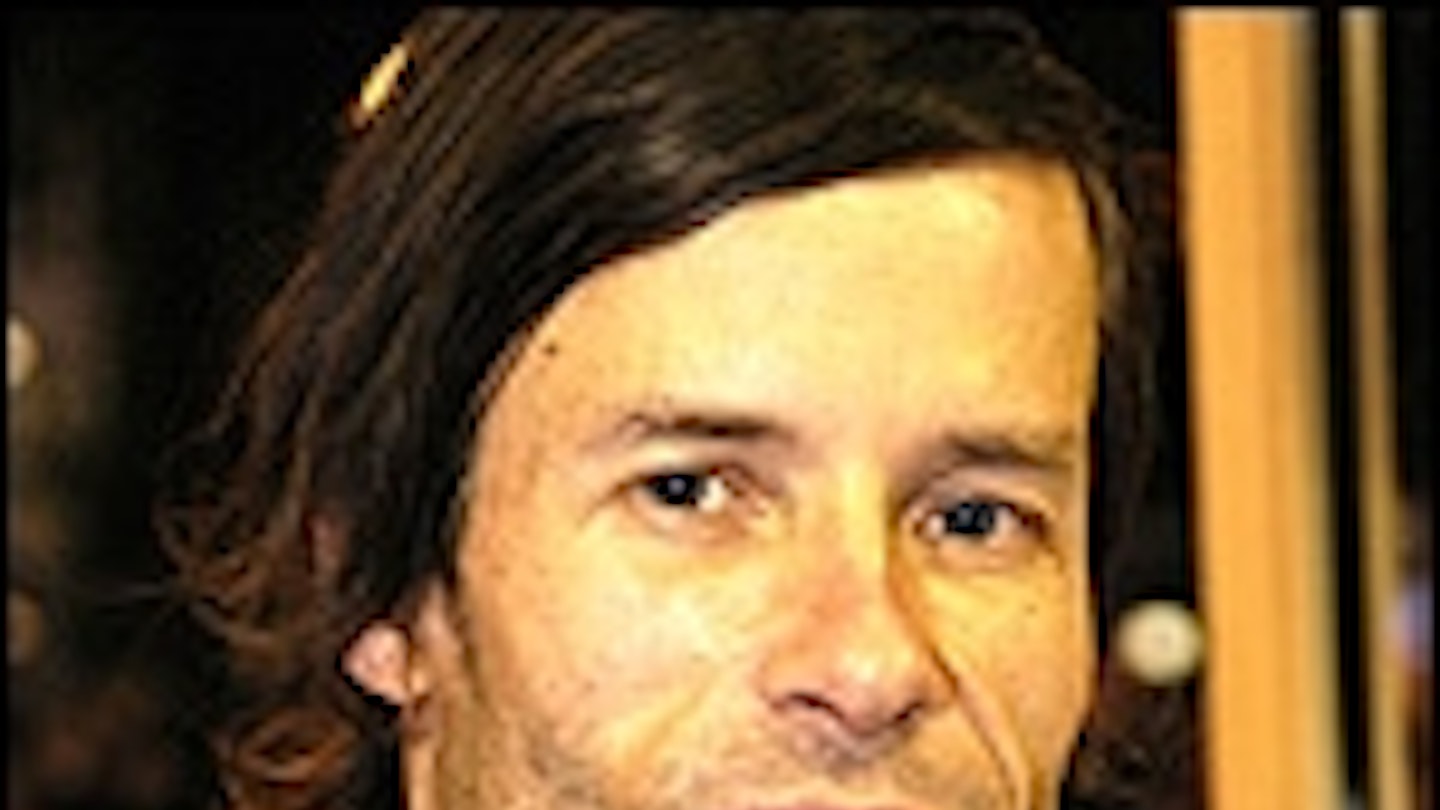What’s that, Skippy? There’s a turn-of-the-century outback town being terrorised by a vicious trio of bushrangers? They’re rapin’ and pillagin’ and no-one seems able to stop them? Well, Skip, better round up the younger two brothers and offer the middle one a pact: slaughter your older bro, or we’ll string up your younger one. Skip? Where are you going, Skip…?
Well, maybe that episode of Skippy never made it to air, but then, you should dump any other cutesy clichés about the Antipodes you might have in mind. Director John Hillcoat and screenwriter Nick Cave’s film reveals an you’ve never seen before: it’s as tough and bloody a movie as you’re likely to catch this year. It’s also one of the best.
It’s a Western in spirit, certainly, but don’t expect the convenient moral certainties of the Hollywood classics. As drunken, dissolute bounty hunter Jellon Lamb (John Hurt, in a typically incendiary performance) declares, “I came to this beleaguered land, and the God in me evaporated.” This is more Peckinpah than Hawkes, but it’s Peckinpah stripped even of his characters’ slimly comforting faith in loyalty and honour. These characters, the witnesses to the final shudder of ’s bloody birthing pains, are scratching a living in unimaginable conditions — a kind of hard-bitten nihilism pervades the place.
At the film’s centre are two men, each struggling to keep or regain their moral bearings among the bloody chaos. As Cpt. Stanley, Ray Winstone adroitly exploits his twin capacity for honest sentimentalism and sudden violence. At heart he’s a decent man — his final aim is to civilize the apparently uncivilizable; but the violence he’s willing to employ to do it threatens to explode out of control and destroy the idyll he’s created for himself and his wife (Emily Watson), whom he shields meticulously from the harsh realities of their lives — thus inviting a kind of terminal blowback.
As Charlie, Guy Pearce, who really has now proved himself to be the more versatile and subtle of the two Antipodean actors we first saw in L. A. Confidential, is taciturn and tantalisingly ambivalent as the man who has to choose between two brothers. Meanwhile, the under-used Danny Huston works hard with the most unforgiving role, that of the elder brother who essentially serves as a walking question mark: will Charlie sacrifice him to save his younger sibling or not?
Director John Hillcoat (who worked with screenwriter Nick Cave on the equally hard-bitten prison drama Ghosts Of The Civil Dead) handles the violence with explosive precision. There’s no misplaced slo-mo romanticism here, just the shocking reality of sudden death and, in the film’s gruelling flogging sequence, a kind of gleeful sadism. Together with his cinematographer Benoît Delhomme, he renders the outback a sweltering, dust-clogged, fly-blasted purgatory, while Nick Cave delivers a screenplay that, in its tortured morality, blood-drenched imagery and final ambivalence, calls to mind, of all films, Taxi Driver.
If there’s a niggle at all, it’s David Wenham’s turn as Eden Fletcher: a disappointingly two-dimensional chinless wonder of a Brit town boss — an excuse for some casual Pommie-bashing via a character straight from central casting. It’s one of the very few flaws in an otherwise thoroughly impressive film.

